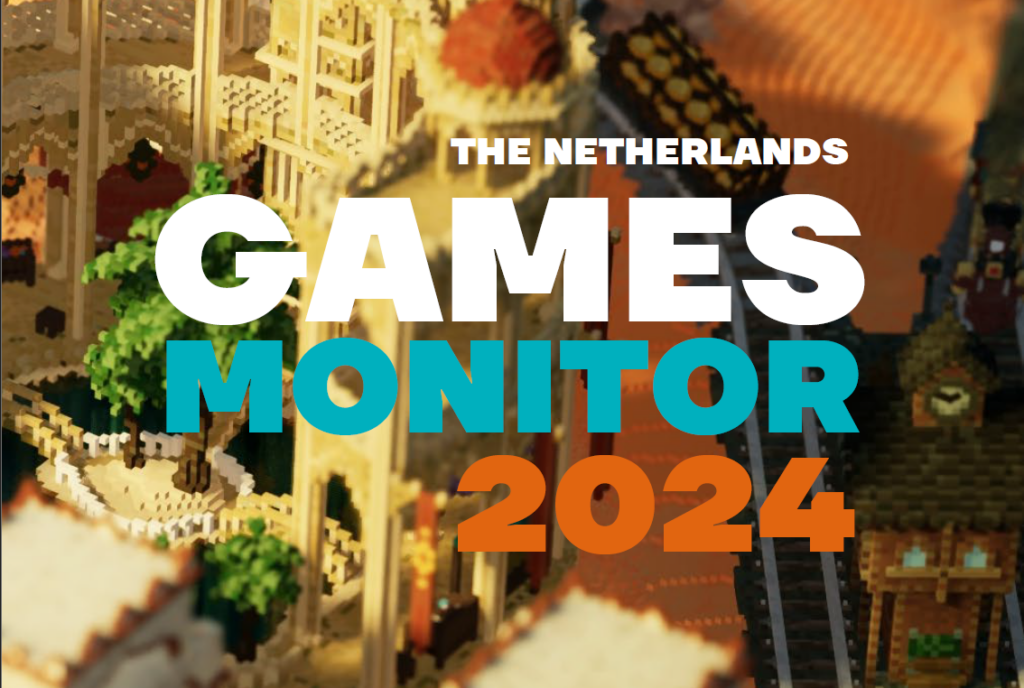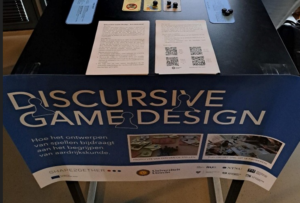
The new Dutch Games Monitor of 2024 has just been released by the Dutch Games Association. This monitor reports the facts, trends, and developments in the Dutch games industry over the past few years. While previous editions used to be published by the Dutch Game Garden, unfortunately they had to cease operations in 2025. So, this year the Dutch Games Association stepped in to ensure the continuation of the Dutch Games Monitor (Dutch Games Association, 2025).
The games monitor’s biggest attention point is the national revenue stream. It states that “while game studios around the world have taken significant hits, the Dutch games sector saw its revenue grow by 10.5 percent between 2021 and 2023, reaching a record €763 million”. When talking about employment, it notes that the amount of companies grew slighly, but “the workforce shrank by 269 people to 4,291.” According to the Games Monitor, most of the change can be attributed to changes in company focus: pivoting to products and services outside of gaming impacts our industry job tally more than actual job losses.
Despite the positive figures, Dutch game companies are increasingly concerned. The games monitor describes that Dutch studios are more and more struggling “to hire niche talent at Dutch salary levels, face strict dismissal law that limits workforce flexibility, and receive little state support compared with neighbouring countries, all the while investors remain cautious”. Partly because of this, about one in six studios say their own studio is struggling, and more than half of the studios think the Dutch games sector as a whole is not in good shape.
Comparing the Dutch Games industry to Europe, our industry is classified as “Moderate Capacity” Game Development Country, just above “Low Capacity” and below “Strong” and “Leading” Game Development Countries. The main challenges the Dutch Games industry faces compared to other countries are a lack of incubators, local risk capital, and government support structures.
The 2024 edition also pays attention to game education in the Netherlands. It states that there are slightly less students signing up for game education since the previous games monitor. While a clear reason is not given, the DGA speculate this might be the cause of demographic changes and “a general drop in interest in ICT courses”. And even though it has also been more difficult to find an internship and a job after completing a game studies program, the Dutch Games Monitor reports that there is no reason for concern as there is “a growing appreciation of game students in non-gaming industries, where their creative ‘game thinking’ is valued.”
And last but not least, while there hasn’t been a big shift between 2021 and 2024 in the sustainability efforts of Dutch gaming companies, Joost Raessens of the Utrecht University gives an interview in the Dutch Games Monitor on why companies must make more of an effort to achieve sustainability goals. He states that “the global emissions of the games industry is still growing, despite some notable net zero commitments”. While the games industry not only contributes to this with its greenhouse gases emissions, it also has a finger in the pie with “material resourse depletion, and other negative environmental impacts in areas where mining for gold, tin, nickel, cobalt, and rare earth metals occurs. Game consoles also often score low on repairability, and achieve very low rates of recycling for e-waste, in line with other electronics.” Joost Raessens therefore urges and bigger companies such as Microsoft, Epic Games and Ubisoft to mind the energy consumption of their players, and to make “efforts to increase software efficiency and to eliminate wasted energy” as much as possible.
For the full Dutch Games Monitor and Joost Raessens interview, visit https://dutchgamesassociation.nl/games-monitor/





